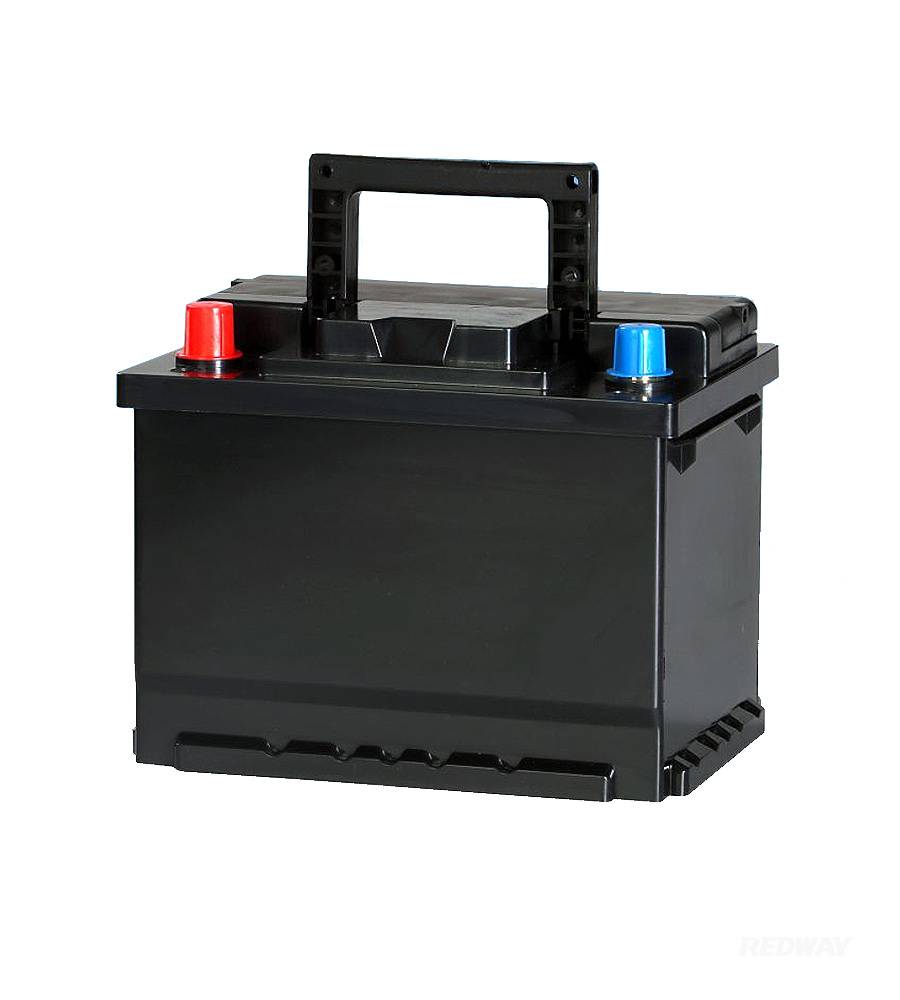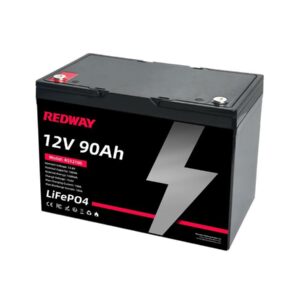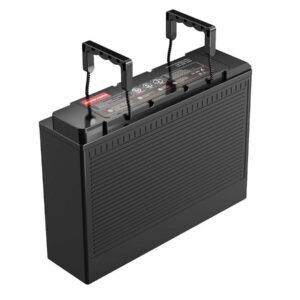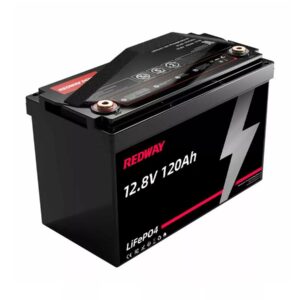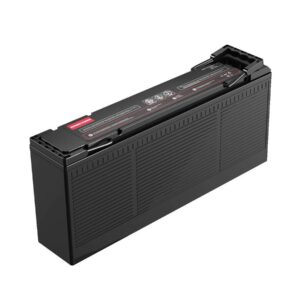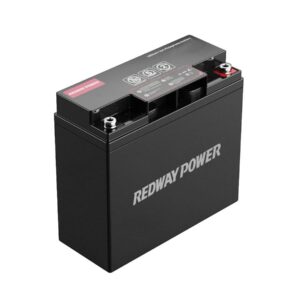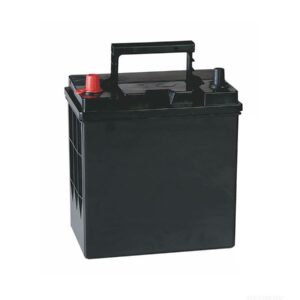Description
Our lithium battery manufacturer offers the 12V 60Ah LiFePO4 Car Starting Battery, an ideal choice for wholesale and OEM buyers. It ensures reliable power and high – performance in automotive applications.
Key Features
- Reliable Starting Power: With 600A Cold Cranking Amps (CCA), it guarantees engine starts in different weather.
- Extended Cycle Life: Designed for over 3,000 cycles at 80% DOD, offering long – term value.
- Wide Temperature Range: Operates from – 30¡ãC to 75¡ãC, suitable for various environments.
- Low Self – Discharge Rate: ¡Ü2% per month self – discharge rate, always ready for use.
- Customizable Solutions: Available for OEM/ODM projects with tailored specifications.
Product Description
The 12V 60Ah LiFePO4 Car Starting Battery is engineered for efficient and reliable automotive use. Using high – quality LiFePO4 technology, it has a nominal voltage of 12.8V, 60Ah capacity, and 768Wh energy output. Compact at 279 x 175 x 189 mm, it’s easy to install. It can charge from 0¡ãC to 45¡ãC and discharge between – 30¡ãC and 60¡ãC, and weighs only 8 kg. With a self – discharge rate of less than 2% per month, it stays ready. The max continuous charge current is 30A and discharge up to 100A. The ABS shell ensures durability.
OEM/ODM Advantages
As a lithium battery manufacturer, we offer OEM/ODM clients extensive customization. Options include silk – screen labeling and user manuals. Our flexible delivery terms (FOB, EXW, CIF) ensure orders are delivered within 25 days, meeting the needs of OEM and wholesale customers.
Choose our lithium batteries for their unmatched performance and reliability in automotive applications. We, as a professional battery manufacturer, are committed to providing the best solutions for OEM partners and wholesale buyers.
High CCA Lithium Car Batteries
What defines a high CCA lithium car battery?
A high CCA (Cold Cranking Amps) lithium car battery refers to a battery capable of providing strong cranking power in cold weather conditions. High CCA batteries are designed to deliver more starting power, typically around 800A or higher, making them ideal for vehicles in colder climates.
How does lithium compare to lead-acid for CCA?
Lithium batteries generally have lower CCA ratings than lead-acid batteries, but they maintain better performance over time. Lithium batteries have a faster recharge time and longer lifespan, even if they don’t provide as high a CCA as lead-acid batteries in extreme cold.
Which vehicles require high CCA lithium batteries?
High CCA lithium batteries are typically required in vehicles with high-performance engines, such as sports cars, trucks, and heavy-duty machinery. They are also useful for vehicles operating in cold climates or for those requiring reliable starting power in extreme conditions.
What certifications ensure reliable lithium battery manufacturers?
Certifications such as ISO 9001 (quality management), UL (underwriters laboratories) certification, and CE marking ensure that lithium battery manufacturers follow industry standards for quality, safety, and performance, ensuring the reliability of the battery.
What challenges arise in high CCA lithium battery production?
Producing high CCA lithium batteries involves challenges such as maintaining stable battery chemistry in extreme temperatures, ensuring fast charge rates, and managing heat dissipation during high power demands. Additionally, balancing energy density and longevity in a compact design can be difficult.
How do temperature extremes impact lithium CCA performance?
Extreme cold can reduce the CCA performance of lithium batteries, as lower temperatures slow down the chemical reactions inside the battery, reducing its ability to provide power. On the other hand, high temperatures can lead to overheating, reducing battery efficiency and lifespan.
LiFePO4 Automotive Batteries
What are LiFePO4 automotive starting batteries’ key advantages?
LiFePO4 automotive starting batteries are lighter, more durable, and safer than traditional lead-acid batteries. They offer longer lifespan, faster charging, and improved efficiency. They also provide better performance in terms of energy density and are less prone to overheating or fire.
How do LiFePO4 batteries perform in extreme temperatures?
LiFePO4 batteries perform well in moderate temperatures but can experience reduced performance in extreme cold, particularly in terms of CCA. However, they are more temperature stable than other lithium chemistries, and temperature management systems can mitigate these effects.
Which vehicles benefit most from LiFePO4 starting batteries?
LiFePO4 starting batteries are ideal for electric vehicles (EVs), high-performance cars, and vehicles requiring frequent starts in moderate climates. They also suit applications that demand long-lasting power, such as RVs, boats, and trucks used for long-haul operations.
What safety features distinguish LiFePO4 automotive batteries?
LiFePO4 automotive batteries include advanced safety features like overcharge protection, thermal management, short-circuit prevention, and a Battery Management System (BMS). These features ensure the battery operates safely, efficiently, and with minimal risk of thermal runaway.
How do LiFePO4 batteries compare cost-to-lifespan with lead-acid?
LiFePO4 batteries have a higher initial cost but offer a lower total cost of ownership due to their much longer lifespan, typically 3,000-5,000 cycles. In contrast, lead-acid batteries need to be replaced more frequently, making LiFePO4 more cost-effective over time.
What certifications ensure wholesale LiFePO4 battery quality?
Certifications such as CE, UL, and ISO 9001 ensure that LiFePO4 batteries meet international quality, safety, and environmental standards. Additionally, batteries with these certifications undergo rigorous testing to ensure reliability and performance in automotive applications.
LiFePO4 Deep Cycle Batteries
What is a LiFePO4 deep cycle starting battery?
A LiFePO4 deep cycle starting battery is designed to provide both deep discharge and reliable starting power. It combines the features of a deep cycle battery, capable of enduring prolonged use without degradation, and the high cranking power necessary for starting vehicles.
How does 12V 60Ah capacity affect performance?
A 12V 60Ah LiFePO4 battery provides a good balance of energy storage and performance for small to medium-sized vehicles or equipment. It delivers sufficient power for starting, along with the ability to handle moderate power demands over extended periods.
What applications use 12V LiFePO4 deep cycle batteries?
12V LiFePO4 deep cycle batteries are commonly used in RVs, solar power systems, boats, and backup power systems. They are ideal for applications that require long-lasting power over extended periods, such as off-grid living or powering small appliances.
Advantages of LiFePO4 over lead-acid starting batteries?
LiFePO4 batteries offer several advantages over lead-acid batteries, including lighter weight, longer lifespan (3,000-5,000 cycles), better safety features, and faster charging. They also perform better in a wider range of temperatures and are more energy-efficient.
Charging requirements for 12V 60Ah LiFePO4 batteries?
12V 60Ah LiFePO4 batteries require a charger specifically designed for lithium-ion batteries, with a voltage range between 14.4V and 14.6V. Charging times will vary but typically take 3-5 hours, depending on the charger and battery state of charge.
Typical lifespan of 60Ah LiFePO4 deep cycle batteries?
A 60Ah LiFePO4 deep cycle battery typically lasts 3,000 to 5,000 charge cycles, depending on usage and maintenance. This is significantly longer than lead-acid batteries, which typically last 500-1,000 cycles, making LiFePO4 a more cost-effective option in the long run.
CCA and Lithium Car Batteries
What defines CCA in lithium car batteries?
CCA (Cold Cranking Amps) defines a battery’s ability to start an engine in cold weather. It measures how much current a battery can deliver at 0°F for 30 seconds while maintaining at least 7.2V. Higher CCA ratings indicate better cold-start performance.
How does lithium battery CCA compare to lead-acid?
Lithium batteries generally have lower CCA ratings than lead-acid batteries, but they offer superior performance in terms of charge cycles and lifespan. While lead-acid batteries may have higher CCA in extreme cold, lithium batteries have a more consistent power output over time.
Factors affecting CCA requirements in car batteries?
CCA requirements depend on factors such as the engine size, climate, and vehicle type. Larger engines or vehicles in cold climates will require higher CCA ratings to ensure reliable starting performance. CCA is also influenced by battery quality and temperature management.
Maintaining 600A CCA in lithium car batteries?
Maintaining 600A CCA in lithium car batteries requires proper temperature regulation, using a high-quality Battery Management System (BMS), and ensuring the battery is regularly charged. Extreme cold and deep discharge can negatively impact CCA, so managing these factors is essential.
Impact of high CCA on lithium battery lifespan?
Higher CCA ratings typically require more robust battery construction and better thermal management, which may increase the weight and cost of the battery. However, with proper care, high CCA batteries can maintain performance without significantly affecting lifespan.
Temperature effects on lithium battery CCA performance?
Cold temperatures reduce the performance of lithium batteries, particularly their CCA. When the temperature drops below 0°C, the battery’s internal resistance increases, decreasing its ability to deliver high CCA. Using a battery heater or thermal management system can help mitigate this effect.
LiFePO4 vs Lead-Acid Comparison
How do LiFePO4 and lead acid batteries differ in lifespan?
LiFePO4 batteries last significantly longer than lead-acid batteries. While lead-acid batteries typically last 500-1,000 cycles, LiFePO4 batteries can last 3,000-5,000 cycles, making them a more durable and cost-effective choice in the long term.
Which has better cold cranking performance: LiFePO4 or lead acid?
Lead-acid batteries generally have better cold cranking performance, offering higher CCA ratings at low temperatures compared to LiFePO4. However, LiFePO4 batteries are still effective in moderate cold, and with the right thermal management, they can perform well in cooler environments.
What are cost differences between LiFePO4 and lead acid car batteries?
LiFePO4 batteries have a higher upfront cost compared to lead-acid batteries. However, over the long term, LiFePO4 batteries are more cost-effective due to their longer lifespan, faster charging, and lower maintenance requirements, making them a better value overall.
Why is LiFePO4 lighter than lead acid starting batteries?
LiFePO4 batteries are lighter than lead-acid batteries because they use lithium iron phosphate as the cathode material, which is much lighter than lead. Additionally, LiFePO4 batteries have a higher energy density, enabling them to store more energy in a smaller, lighter package.
Do LiFePO4 batteries require less maintenance than lead acid?
Yes, LiFePO4 batteries require significantly less maintenance than lead-acid batteries. They don’t need regular water refills or cleaning of terminals, and their advanced Battery Management Systems (BMS) handle charge control, ensuring longevity with minimal intervention.
How do LiFePO4 and lead acid batteries compare environmentally?
LiFePO4 batteries are more environmentally friendly than lead-acid batteries. They contain non-toxic materials and are recyclable. In contrast, lead-acid batteries contain lead, which is toxic and requires special disposal, making

